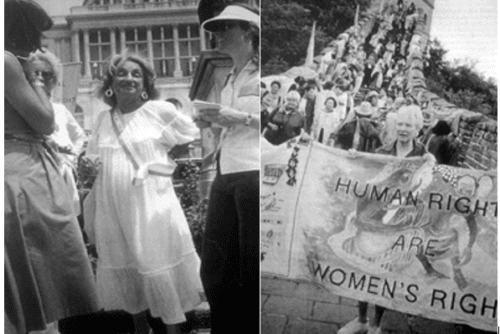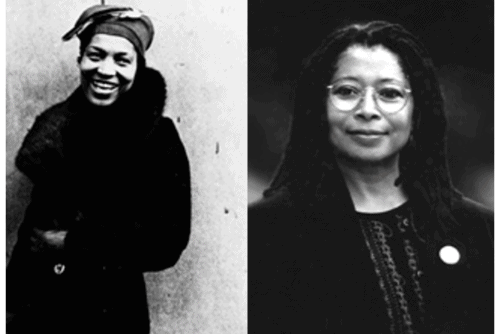There were a number of similarities and a few potentially significant differences between men’s and women’s explanations of their choices to blog pseudonymously. Both men and women used pseudonyms to protect their jobs from possible employer disapproval of their blogging. However, both men and women also explicitly reported using their real names because they wanted their blogging to be professionally advantageous. Men were far more likely than women to report that they viewed blogging as a form of professional advertising, though these men also said that they guarded their family’s privacy by minimizing personal content. A number of women reported the opposite decision: they blogged pseudonymously so that they could talk about personal experiences of work or domestic life while maintaining their privacy. This survey, then, suggests that the association of men with the public world and women with the private world is reflected, to some extent, in bloggers’ choice of topics, and that the latter—rather than diffidence about the public nature of blogging—drives some women’s choices to use aliases.
This choice, however, is mutable. Two of the women who blogged pseudonymously said that they had deliberately chosen to break their pseudonymity in order to claim the blog as a professional asset; in other words, they did not initially plan to use blogging as a career benefit. No men indicated that their awareness of blogging as a potential career benefit had developed over time.
It seems important to call attention to the specific advantage of periodicity in this regard: because blogs are published at intervals over time, bloggers’ conceptions of the purpose and audience of their blogs is subject to change, and this change in turn may affect their self-presentation and content. The mechanisms of these changes are beyond the scope of this study, but the effect of blogs’ temporal nature on readers, authors, and content surely bears further examination.
The most striking distinctions between men and women bloggers were in their reported awareness of gender as it affected content and in their reasons for using pseudonyms. A much larger percentage of women than of men explicitly recognize the ways that their content was gendered; even women who saw their blogs primarily as professional, rather than personal, reported that they occasionally addressed specific gender issues on their blogs. Most interesting to me, two men who used pseudonyms reported doing so as a kind of game, because they found it amusing to experiment with a persona. In contrast, most women who said that they enjoyed creating their pseudonymous characters explicitly said that this enjoyment was a post facto realization. Although both men and women said they used pseudonyms to avoid being identified by their employers, many women simply explained pseudonymity as the result of fear, not of professional repercussions, but for their or their children’s physical safety. Five women reported having been “threatened” online before taking up blogging. 1 One man who did express anxiety about putting his or his family’s real names on the Internet explicitly noted that his wife was more afraid of it than he was.
Perhaps as a corollary to their fear of being personally harassed, a number of women reported that being pseudonymous allowed them to be more honest, more confident, and more assertive writers. Women were particularly likely to articulate the ways that blogging functioned as a process of discovery (including, as mentioned above, the discovery of the advantages of using their real names). My sense of survey respondents’ comments is that bloggers, like eighteenth-century periodical essayists, begin with pseudonyms because of perceived material dangers to their livelihoods or, particularly for women, their persons. Unlike periodical essayists, however, modern women bloggers report no concern about the personal effects of publishing in and of itself. In fact, several pseudonymous bloggers said that they wished they could “claim” their writing, and that this desire made them feel ambivalent about their anonymity.
Despite surface similarities, then, the experiences and intentions of anonymous women bloggers do not seem to be the same as those attributed to anonymous women writers from previous eras. This distinction may indicate a revision of our understanding of previous generations of women who, being no longer available to report their intentions and self-perceptions as writers, have to rely on scholars’ interpretations of circum-stantial evidence for our understanding of their experiences. For contemporary scholars of blogging, it suggests that the “where-are-the-women” question must be understood in a historically specific light. While the very thing that allows some women to be more confident writers—pseudonymity—also makes it easier for careless or casual readers to overlook their presence as women, we also have a unique opportunity to study how that seeming disadvantage may actually contribute to women’s decisions to write and to their development as writers. Historically, pseudonymity rendered eighteenth-century women essayists invisible, but while it may seem to do the same for women bloggers, their own words intimate a new appreciation of the ways that in fact it brings them into the open.
- There have been a number of studies showing that women are very likely to be harassed or threatened online. Robert Meyer and Michel Cukier report that women are 25 percent more likely to be harassed online than men (“Assessing the Attack Threat Due to IRC Channels” [University of Maryland: 2006], http://www.enre.umd.edu/content/rmeyer-assessing.pdf).[↑]



